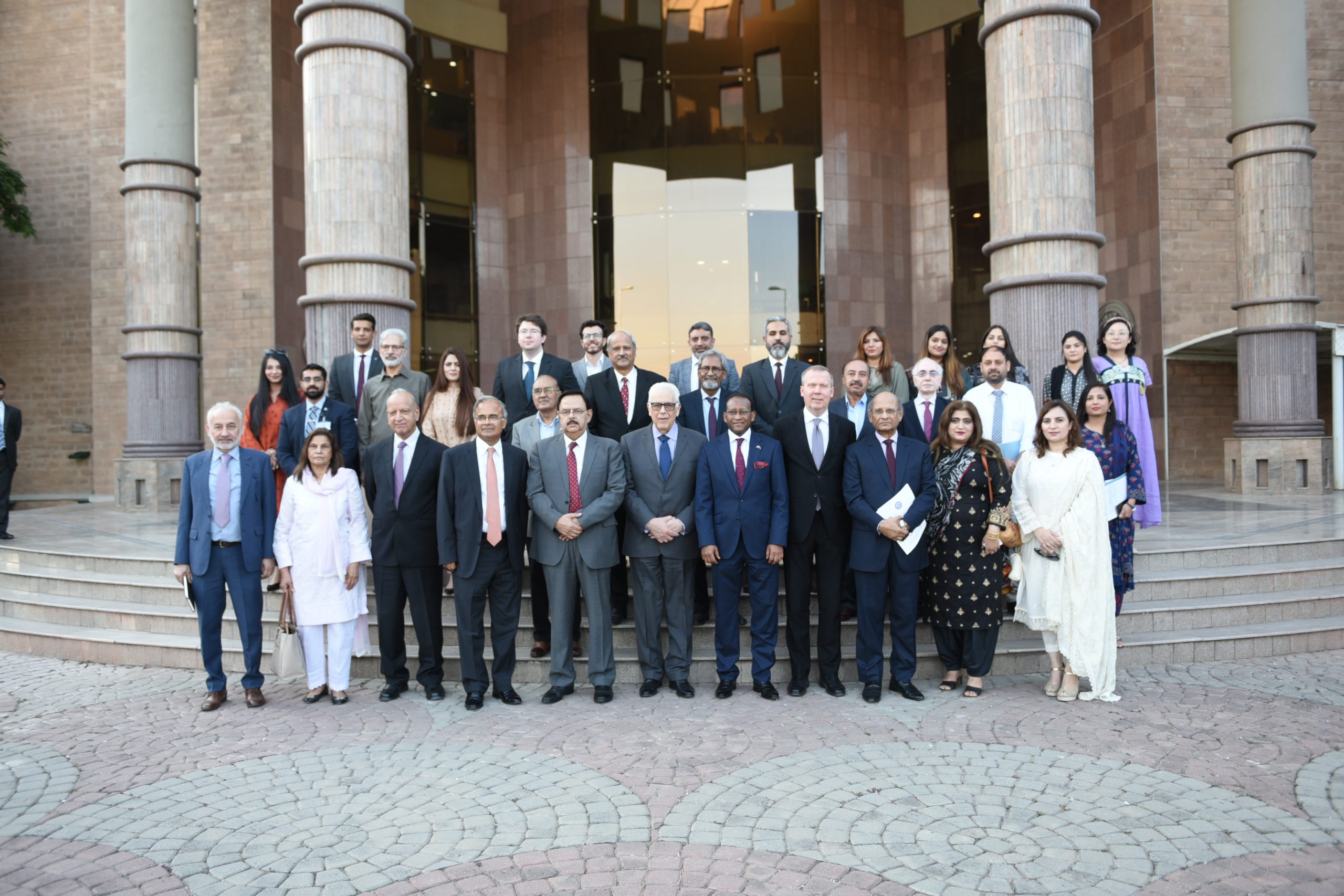Expanding BRICS and the New Alignments
-Share this story:
Islamabad, October 4, 2023 – The NUST Institute of Policy Studies (NIPS) organized the high-level roundtable on “Expanding BRICS and the New Alignments” on Wednesday, October 4, 2023. Moderated by Mr. Amir Yaqub, Director, NIPS, the roundtable saw multinational participation consisting of senior diplomats, academics, veteran state officials, think tank experts, scholars, and students.
Dr. Asad Majeed Khan, Pakistan’s former foreign secretary, delivered the keynote address on the impact of the expansion of BRICS on prevailing global geopolitics. He highlighted that BRICS represents 41% of the world population, 24% of the world GDP, and more than 16% share of the world trade. He stated that BRICS is both undergoing the process of institutionalization and strategically extending its relations outward, thereby solidifying its position as a prominent global player. He pointed out that the aggressive weaponization of the financial system by the dominant powers, coupled with the deleterious effects of bloc mentality, has accelerated the growth of BRICS as a plurilateral platform.
The former foreign secretary remarked that BRICS expansion represents an alternative to unipolarity with a strong preference for inclusive multilateralism. He underscored that while the case for Pakistan’s closer engagement with BRICS is indeed strong, the country could expect unique challenges in terms of the question of the membership of the global grouping.
In the roundtable’s second keynote on the expansion of BRICS and the new alignments, Dr. Ashfaque Hasan Khan, DG NIPS, proposed the concept of “New Geoeconomics” to understand the transformative impact of global groupings like BRICS on the world system together with other types of contemporary counterhegemonic alignments. Dr. Khan argued that the new geoeconomics can be viewed as a global response to the geopolitical upheavals of the last two decades. This response, he said, is based on the efforts of emerging states to resist traditional power politics by means of the new forms of connectivity cooperation, trade partnerships, and financial integration.
The maturing of BRICS, Dr. Khan opined, has coincided with the relative decline of the traditional great-power blocs like G7. He also pointed out that several G20 member states are also desirous of BRICS membership. In his view, the journey of this particular form of multilateralism from BRIC to BRICS to BRICs Plus in the future has been and will be a fascinating saga of a robust vehicle of new geoeconomics from the perspective of the global South.
An extensive discussion session followed the keynotes in which various foreign dignitaries expressed their thoughts.
The Ambassador of Brazil to Pakistan, H.E. Alfredo Leoni, highlighted the dynamic nature of the world today, emphasizing the emergence of new alignments in the global landscape. He stated that while the future remains uncertain, a new global paradigm is certain to emerge.
The Ambassador of Russia to Pakistan, H.E. Danila V. Ganich, emphasized that BRICS nations prefer cooperation to conflict. He welcomed any potential participation in BRICS, emphasizing the significance of collaboration in the contemporary international community. He commended Pakistan for its robust diplomatic presence on the global stage. Ambassador Ganich mentioned that BRICS remains focused on cooperative solutions to global challenges, striving to create a more inclusive and interconnected world.
The High Commissioner of South Africa to Pakistan, H.E. Mthuthuzeli Madikiza, stressed that the quest for freedom for a nation goes beyond politics and encompasses economic independence. In this context, he highlighted the potential of BRICS expansion to serve as a catalyst for achieving economic independence and prosperity among its constituent members.
The Ambassador of Ethiopia to Pakistan, H.E. Jemal Beker Abdula, emphasized the need for balance in international relations based on national interests and advocated for inclusivity, equality, and representation within the global system. He said that BRICS, with its commitment to cooperation and inclusivity, is well-positioned to champion these ideals.
Prominent among notable attendees of the roundtable were Lieutenant General Naeem Khalid Lodhi (Retd), Dr. Shoaib Suddle, Ambassador Masood Khalid (Retd), Ambassador Fauzia Nasreen (Retd), and Dr. Zamaraeva Natalia.




